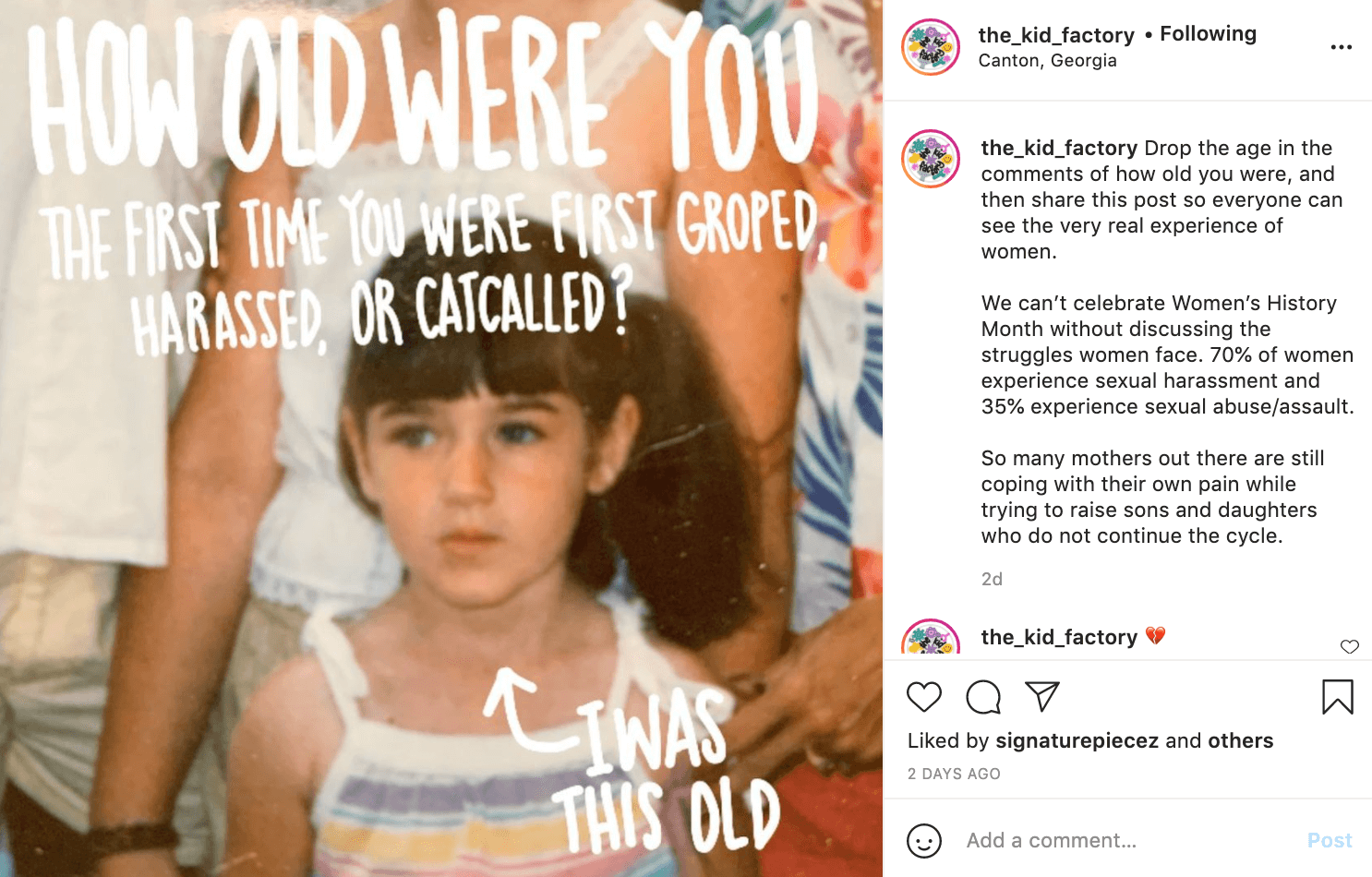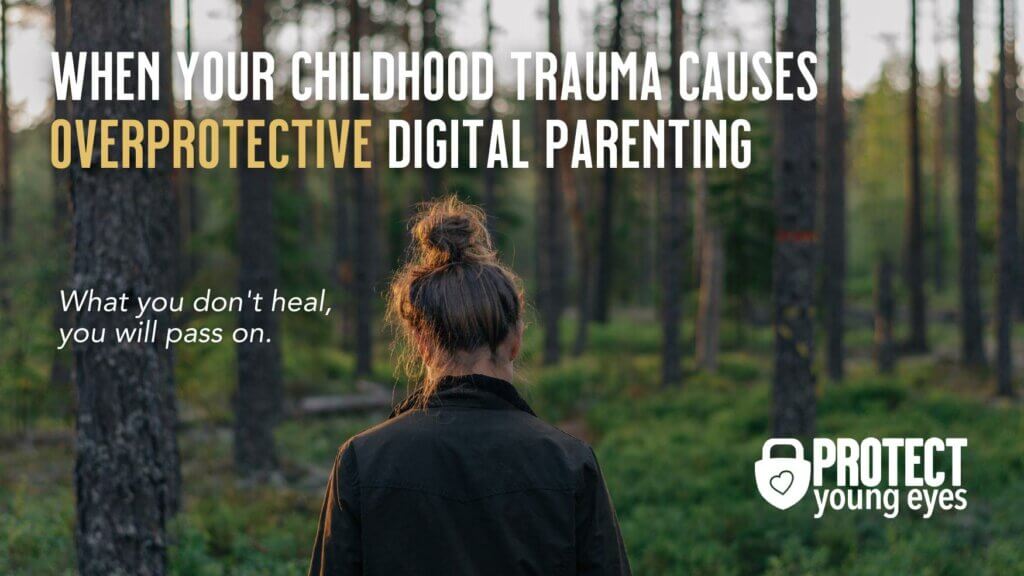(Updated May 20, 2024)
Hi, I’m Cindy. This blog post is for us.
Those of us who were abused as children.
Raising children is scary for every parent, but it can be downright terrifying for parents who experienced childhood trauma. I was sexually abused by a family member, my father died unexpectedly, and I was raped, all by the age of 18. I know there are times when I feel completely overwhelmed and helpless in preventing my child from experiencing the same horrors I did as a child.

For those of us who have survived childhood trauma, the worst-case scenario IS the scenario. We don’t know a world without darkness, brokenness, and pain. And to make matters worse, now we have to raise a child with absolutely no roadmap of how to do it RIGHT. If you’re relating to this so far, then listen up – because I wrote this for YOU.
When you’ve experienced trauma as I did, it’s easy to lose your bearings on what are legitimate worries and what are unreasonable ones. Can you relate to that feeling?
While most of our traumatic situations likely occurred in our homes, in someone’s bedroom, or on a playground… today we know our children face most of their scary situations on their screens – which leads to mom becoming an overprotective online ninja. But before you download 5 GPS tracking apps on their phone or sit over their shoulder until they’re 25, first try using these few key tricks to get your bearings. They will really help you better balance protecting vs. overprotecting your child.
3 Steps for Overcoming Our Childhood Trauma
Step 1: Healing
If you truly want your child to grow up with a trauma-free life, you must first heal the trauma that exists within you. Originally, I assumed I was too broken to heal. So my best bet was raising a completely unbroken child and that would be my source for happiness. WRONG. What I discovered instead was, that whatever I wasn’t willing to heal I was passing on to my child to have to heal for me. Go back and read that sentence again. I’ll wait.
ONE MORE TIME:
…whatever I wasn’t willing to heal I was passing on to my child to have to heal for me.
If you don’t heal your traumas, they seep through you in every overprotective action you take. Your child grows up with a scared, distrusting parent… and all the Disney trips and big fake smiles in the world won’t hide that. Heal yourself – seek professional help, spiritual help, get curious about yourself (I highly recommend the book The Body Keeps the Score for this journey), whatever you have to do – give yourself the gift of healing. YOU are worth it… and your child will reap the benefits.
Step 2: Education
Statistics help me a LOT. Because my inner compass was thrown off course due to my childhood trauma, I rely a lot on science and research. It tells me what is REAL. Research shows that our children will be safer if we slowly decrease online monitoring over time (rather than increase as they get older and terrify us more). This helps me know that I HAVE to remove monitoring by the time my child is 18. That is now my compass.
Research also shows that the odds of our children being abducted are increasingly low… which means letting a 5th grader walk to the nearby ice cream shop (if I live in a relatively safe neighborhood) is an empowerment exercise – NOT an endangerment. That is now my compass. Research also confirms that kids are very susceptible to online predators, so your instinct to not let them have social media at 11 years old is a very REAL concern. That is now my compass. Either way, science and research are empowering tools – use them!
Step 3: Be Honest
Tell your child why you tend to overprotect them. Tell them about your abuse/trauma – in an age-appropriate way.
What possible appropriate way is there to tell an innocent child about abuse?
Nice try… but I have an answer for that! Here’s what you do: Purchase the It’s So Amazing book series by Robie M. Harris. Or, in the other recommended books on Amazon, find something that fits your worldview (quick comment from Chris at PYE – there’s Luke Gilkerson, a friend who also used to work at Covenant Eyes, with books through a Biblical worldview).
Robie’s books talk about all of the scary stuff in an age-appropriate way. Use it like a script. Then, when it comes to a section of the book that refers to a trauma YOU experienced, tell your child. “That happened to Mama, you know.” This is SO powerful. If your child ever does experience abuse, particularly sexual abuse (the most silent and private of them all), who do you think they will tell? The parent who seems perfect, pure, and flawless or the parent who they know can relate?
Another reason why you should talk to your kid about your traumas is because they are too intuitive not to. Kids pick up on our signals like nobody’s business! They can sense you want to control every aspect of their lives… but they don’t know the “why”. If you don’t explain that it is because of your OWN fears and traumas, they will assume it’s because of THEM. They will begin to think: I’m not trustworthy. I must be a bad kid. Do we want that?? Of course not!
In conclusion, try using those steps before making major decisions about the online protection of your child. Having the lens your trauma gave you can be very powerful – you have seen it all so you are ready for anything. But use that superpower in the most positive way possible… for protecting AND preparing your child for their future as healthy, capable adults.
Ok, back to Step 1 – Healing. If you’re ready, I can work with you to heal those traumas. This is now what I do. I have developed my own approach and it’s particularly successful for parents who have experienced childhood trauma. Would you like to learn more? I would love to hear from you.


Really nice post. Anyone that has not healed, or anyone wanting further perfection in their life walk should check out Life Skills International, it is a 32 week course (with option for 3 year 2nd stage). Nearly all adult relationship issues (in general, not just romantic) stem from childhood abuse of some sort prior to age 13 – or being the child of someone who was abused, it can make you dysfunctional in some other way. In the group of men in my class, 1/2 were sexually abused prior to 13, so it is not just girls. The course shows you how to safely analyze those events, cope, understand why things happen, repair the damage, and grow healthy relationships with others, whether it be a spouse, child, or business – life in general. The program addresses sexual abuse, violence, drug/alcohol- but if you have never experienced any of those you may have led a perfect youth and the course will STILL change your life for the better, or you might actually be repressing some trauma you don’t even know about, the program founde did not even find out he was sexually abused at a young age until his mid 40s. Cost is very low, many are run by volunteers. There is probably an independent local chapter near you, find out at http://www.lifeskillsintl.org if they can locate a meeting place near you. Some have teen specific groups as well as adults. I was able to grow more in 6 months than 40 years in this course.
Thank you for posting this- it was exactly what I needed to see today. I appreciate you sharing this experience and the tools that you used.